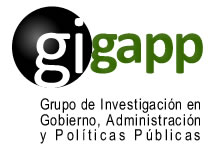Impacts of Neoliberalism on the Welfare State and Democracy
A Conceptual and Empirical Analysis
Abstract
The aim is to analyze the foundations of neoliberalism through its main author (F. Hayek), in the context of the "austrian school", in order to demonstrate the opposition to political democracy (for example, social participation) and social democracy ( the rights society). Likewise, it aims to demonstrate the linkage of the state parliamentary coup (released in 2016 in Brazil) to the values stemming from this ideology. To that end, the main document produced by the political party that led the coup, the PMDB, is analyzed, which presupposes the neoliberal ideas bequeathed by Hayek and others, as well as antisocial and antipopular programs that have been substantively altering Brazilian political, economic and social life .
Downloads
Copyright (c) 2019 Francisco Fonseca, Dr. (Autor/a)

This work is licensed under a Creative Commons Attribution-NonCommercial-ShareAlike 4.0 International License.
Those authors who have publications with this journal, accept the following terms:
a. Authors will retain their copyrights and guarantee the journal the right of first publication of their work, which will be simultaneously subject to the Creative Commons Attribution-NonCommercial-ShareAlike 4.0 International (CC BY-NC-SA Recognition License). 4.0) that allows third parties to share the work as long as its author and its first publication are indicated in this journal.
Under this open access license, readers (users) can:
- Share — copy and redistribute the material in any medium or format
- Adapt — remix, transform, and build upon the material
Under the following terms:
-
Attribution — Users must give appropriate credit, provide a link to the license, and indicate if changes were made. You may do so in any reasonable manner, but not in any way that suggests the licensor endorses you or your use.
-
NonCommercial — Users may not use the material for commercial purposes.
-
ShareAlike — If remix, transform, or build upon the material, users must distribute your contributions under the same license as the original.
- No additional restrictions — Users may not apply legal terms or technological measures that legally restrict others from doing anything the license permits.
b. Authors may adopt other non-exclusive license agreements for the distribution of the version of the published work (eg: deposit it in an institutional telematic archive or publish it in a monographic volume) provided that the initial publication in this journal is indicated.
c. Authors are allowed and recommended to disseminate their work through the Internet (e.g. in institutional telematic files or on their website) before and during the submission process, which can lead to interesting exchanges and increase citations of the published work. (See The effects of open access).



